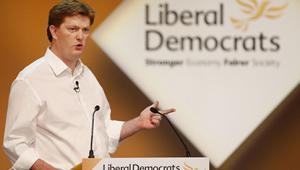What passes for political debate about the deficit and how to reduce it struggles to inform, because it is based on the strange proposition that most of the reduction is occurring through spending cuts. The numbers show otherwise.
Whilst there are cuts in planned spending, total spending carries on rising in cash terms, so all the deficit reduction planned happens through increased tax revenues. The increases in VAT and National Insurance are an important part of delivering this tax-based approach. As we have seen, the main reason increased cash spending delivers some unpleasant cuts is the rising inflation. Bad public sector management in some councils and quangos adds to the stresses.
The poor public debate is made worse by many people misunderstanding the difference between debt and deficit. A deficit means the debt is going up – the country has to borrow more money each year to pay for the excess spending, on top of the huge debts already built up. A lot of people, including media interviewers and commentators, seem to think that reducing the deficit is the same as paying debt off – if only!
Last night on Channel 4 News Jon Snow’s interviews left the impression that increased VAT could be a short-term measure to ‘pay down the deficit’, and that once that was done the tax could be cut again. The increased VAT on the government’s strategy is needed to meet some of the costs of rising cash spending that otherwise would have to be borrowed.
Increased VAT pays off no debt. It does not even stop the debt increasing. It merely slows the rate at which the debt is increasing. The £13bn a year increase in VAT is considerably less than the planned cash increase in spending over this Parliament.
Labour’s approach is to say that even more of the job of deficit reduction should be achieved by increased taxes. As all the deficit reduction is being achieved by increased taxes this in effect means Labour wishes to increase spending more rapidly than the coalition, and use extra tax revenue to pay for the extra spending. Labour wants extra National Insurance on top of the planned increases the government is putting in.
Of the two plans on offer, the coalition one is preferable because it cuts the deficit more quickly, and avoids even higher taxes which would be job destroying. Better control of public spending would help the recovery. There is no substitute for the public sector doing more with less.
John Redwood is the MP for Wokingham and is chairman of the Conservative Economic Affairs Committee. This post first appeared on John Redwood’s Diary










